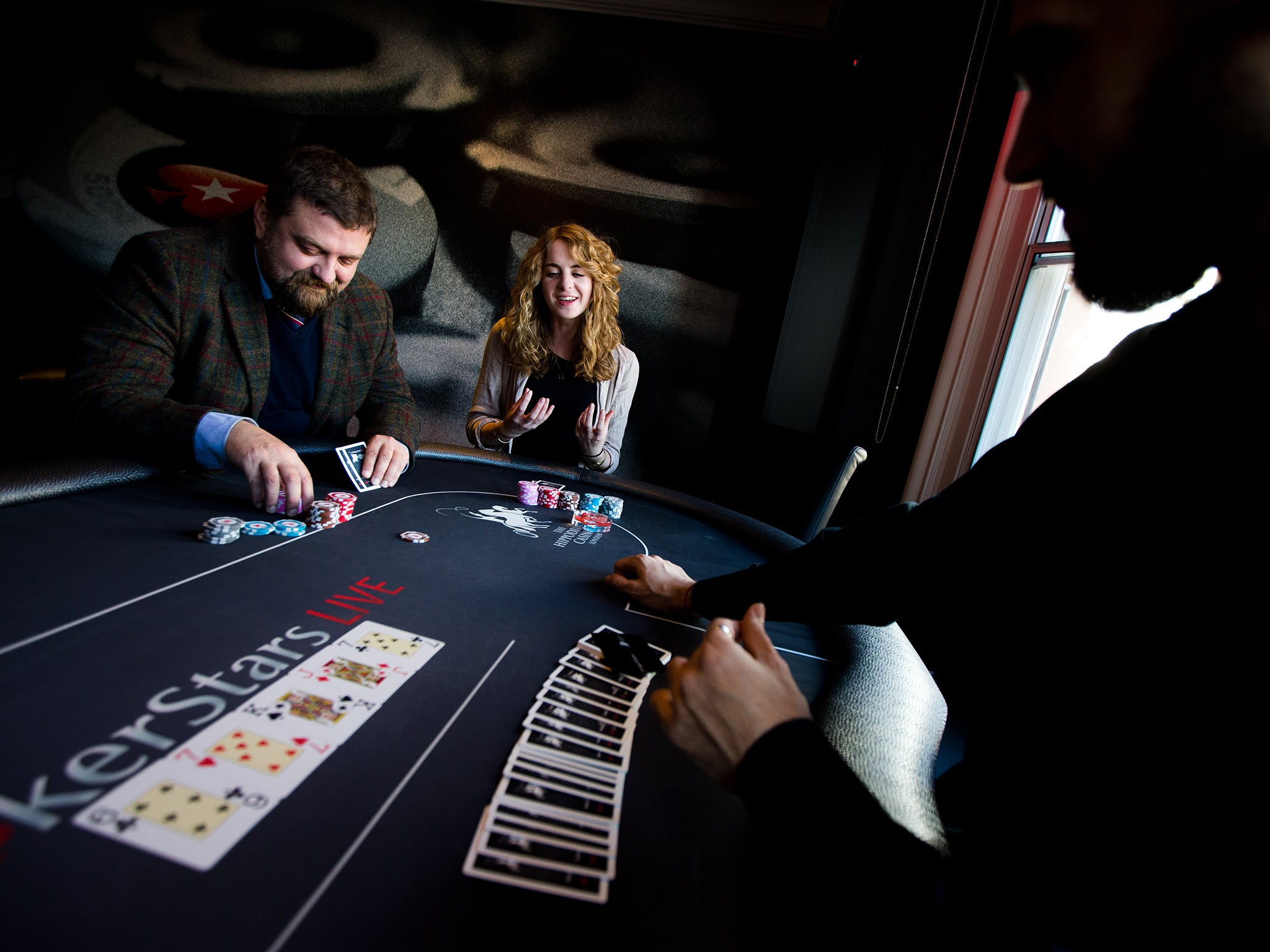Poker: Will the government start taxing player's winnings?
Rachael Pells - a novice - tries her hand at the game to find out

Try telling a professional poker player that their passion is more a game of luck than strategy, and they’ll probably snort in derision. And this week research gave them scientific ammunition to throw back at the claims too; after years of study into the matter, academics have laid their cards out and said definitively that poker is a game of skill.
Taking into account the observation of 456 million player-hands from a year’s worth of online poker games, researchers from the University of Nottingham, Erasmus University in Rotterdam and VU University in Amsterdam have agreed there is “substantial evidence” that the amount of skill involved in playing the game successfully outweighs the impact of mere chance.
The games’ biggest names may not like the potential ramifications, however, with speculation that the ruling could prompt the Government to tax players’ winnings.
Players will argue they have worked hard for the money, spending years learning card strategy. As well as making quick calculations, they learn to read tell-tale signs from other players on what kinds of hands they hold – all arguably very skilful. But, in light of the new study, what’s to be said for the fabled beginner’s luck?
As a complete novice – and, I must confess, a total poker cynic – there was one clear way for me to test the theory. In the slightly seedy darkness of one of the London Hippodrome Casino’s many private rooms, I was treated to lessons with some of the world’s top players, including Fatima Moreira de Melo, from PokerStars Live.
“Poker is a game of tactics,” said the small but ferocious Netherlands star. “Why do you think I wear low-cut shirts when I play? You’ve got to use every advantage.”
Sitting on the “beginner’s table”, I was talked not so patiently through the rules of the game. Two cards in a hand, 25 points to play, royal flushes are great, a seven and a deuce is bad. So far so good, but as the drinks flowed the cards were soon flying and the atmosphere in the room grew tense.
I struggled to understand how people could think so deeply into playing a game which they really had no control over; part of what makes poker so unique is that there are no trades or exchanges of cards. The hand you’re dealt really does come down to the luck of the draw.
I could see no way of telling if bored-faced Sarah or turtle-necked James across the table had a better hand than me. It was all a matter of bluffing. And I was the bluffer of all the bluffing players because I still had no idea what was going on.
During the first few hands, I’d asked questions. I’d tried to absorb advice. But the truth was the game had progressed and I was far too embarrassed to admit I still didn’t understand why my pair was any better or worse than my rivals’ – so I pretended that I did.
Through the tactic of copying other players with a series of simple knocks on the table and confident throwing in of chips, I was left with just one opponent as our table decreased from a party of 10. My hand was good, if not quite good enough. I lost, but I’d come second without making any coherent decisions. Call it beginner’s luck, but there was no skill involved in my first game. With my mentor gone, there was perhaps even less skill involved in my second – but, this time, I won hands down, so to speak. Was I any closer to understanding the game now? No. But the prize was still deservedly mine for the taking.
Someone who understands at least the financial strategy of the poker industry is Hippodrome Casino’s chief executive, Simon Thomas. Considering that establishments such as this already pay 50 per cent of their income in Gaming Duty, Mr Thomas believes that to tax players’ winnings would “absolutely kill the game”. “You can’t tax a casino because poker is gambling and then tax a player because it’s a skill, it’s got to be one or the other,” he said.
But as long as there are mugs like me bluffing my way to the jackpot, it’s a debate which will most likely stay unresolved.
Subscribe to Independent Premium to bookmark this article
Want to bookmark your favourite articles and stories to read or reference later? Start your Independent Premium subscription today.

Join our commenting forum
Join thought-provoking conversations, follow other Independent readers and see their replies